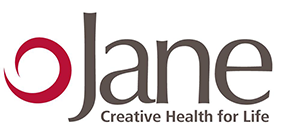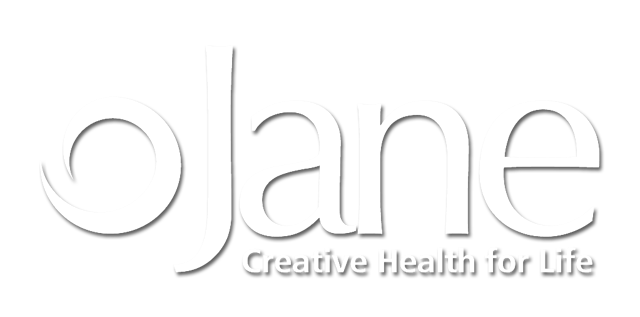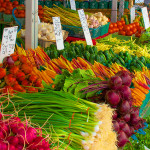Eating healthy and losing weight seems downright impossible for many people.
Despite their best intentions, they repeatedly find themselves eating large amounts of unhealthy foods, even though they know it is causing them harm.
The truth is that the effects of certain foods on the brain can lead to addictions.
Food addiction is a very serious problem and one of the main reasons some people just can’t control themselves around certain foods, no matter how hard they try.
So… What Is Food Addiction?
Food addiction is, quite simply, being addicted to junk food not unlike how drug addicts are addicted to their drugs. It involves the same areas in the brain, the same neurotransmitters and many of the symptoms are identical. Processed junk foods have a powerful effect on the reward centers in the brain, involving brain neurotransmitters like dopamine. Food addiction is not about a lack of willpower or anything like that, it is caused by the intense dopamine signal hijacking the biochemistry of the brain. The foods that seem to be the most problematic include typical “junk foods,” as well as foods that contain either sugar or wheat or both.
Food addiction is real and is the root cause of why so many people are overweight and sick. They are stuck in a vicious cycle of cravings. They eat foods that spike their blood sugar and make the brain’s pleasure center light up. This triggers more cravings, driving them to seek out more of the substance that gives them this “high.”
If you’re overweight, there’s a good chance that you’re addicted to certain foods and perhaps don’t know it. But it’s not your fault. Food addiction is usually framed as an emotional issue, but it is in fact largely a biochemical problem. In fact, your hormones, taste buds, and brain chemistry have been hijacked by the food industry.
Sugary foods, processed foods filled with sweeteners, and refined carbohydrates, such as bread, pasta, and chips, all turn into sugar in your body and spike your blood-sugar levels. Sugars light up pleasure centers in your brain, just like cocaine and heroin do. This causes addictive cravings for these foods — cravings that we often can’t resist.
And, while our bodies certainly need the starches and sugars found in healthy carbohydrates — such as veggies, whole-kernel grains, and low-glycemic fruit like berries — refined carbs such as bread, pasta, and chips basically turn into sugar in your body, playing havoc with blood sugar and causing cravings.
Food addiction can cause physical harm. It can lead to serious diseases like obesity, type 2 diabetes, heart disease, cancer, Alzheimer’s, arthritis and depression, to name a few.
But apart from disease and illnesses food addiction is also ruining your life… It can break your self-esteem and make you unhappy with your body.
Are there any Symptoms of Food Addiction?
There are no blood tests available to diagnose food addiction. Just like with other addictions, it is based on behavioural symptoms.
These are some common symptoms that are typical of food addicts:
- You frequently get cravings for certain foods, despite feeling full and having just finished a nutritious meal.
- When you give in and start eating a food you were craving, you often find yourself eating much more than you intended to.
- When you eat a food you were craving, you sometimes eat to the point of feeling excessively “stuffed.”
- You often feel guilty after eating particular foods yet find yourself eating them again soon after.
- You sometimes make excuses in your head about why you should eat something that you are craving.
- You have repeatedly tried to quit eating or setting rules (includes cheat meals/days) about certain foods but been unsuccessful.
- You often hide your consumption of unhealthy foods from others.
- You feel unable to control your consumption of unhealthy foods, despite knowing that they are causing you physical harm (includes weight gain).
Whatever You Do, Do Something!
Food addiction is a problem that will rarely resolve on its own. Unless you deal with it, chances are that it will just get worse over time. If you have this problem, then you should consider doing something about it today.
Going Cold Turkey
Remember, biochemistry drives your behaviour, not willpower. So, to end your cravings, to stop overeating, to lose weight, and to stop disease, you need to reset your hormones, neurotransmitters and metabolism. This is the foundation of a detox to break the food-addiction cycle.
Here’s what a detox can do for you:
- Shut down insulin surges and thereby arrest belly-fat storage and cravings.
- Improve your sensitivity to insulin so you need less to balance your blood sugar, resulting in weight loss and health.
- Reduce cortisol, the stress hormone that increases cravings for sugar, promotes belly-fat storage, and shrinks your brain.
- Lower ghrelin, the hunger hormone.
- Improve leptin sensitivity in the brain, allowing your natural appetite-regulating system to work again.
- Increase peptide, the intestinal hormone that acts like a brake on your appetite and makes you feel full after a meal.
- Increase dopamine naturally and reset your brain’s reward pathways so you can feel pleasure with real food.
- Reset your taste buds so real food tastes good again.
- Reduce inflammation (the problem at the root of almost all weight gain and chronic disease) by eliminating common food sensitivities, processed foods, and sugar, and by eating anti-inflammatory foods.
- Eliminate toxins from your diet and life and enhance your body’s ability to get rid of stored toxins that make you fat.
What to do next – Out with the Bad
The bad stuff are all the toxic foods, drinks, and lifestyle habits that are clogging your system. This list also includes foods that are not necessarily “toxic” but are likely to trigger spikes in your blood sugar, as well as cravings:
- All sugar products, including honey, molasses, and agave; liquid sugars, such as sodas and fruit juices; or anything containing sugar. This also includes all artificial sugars and sugar substitutes.
- Gluten
- All white grains (including gluten-free ones)
- Dairy, including milk, yogurt, cheese, ice cream, butter, cream, and casein
- All processed and factory-made foods
- All refined and processed vegetable oils
- Alcohol
- Caffeine
- Other stimulants or sedatives.
In with the Good!
Each of these foods and lifestyle practices is included because of their powerful ability to help your body heal, detoxify, and shed excess pounds:
- Foods that boost detox – fruit, green vegetables, lemons, oranges, limes, garlic, nuts and seeds, omega 3 oils.
- Foods that improve gut function – vegetables, whole grains (wild rice, quinoa, spelt..etc), nuts and legumes are good source of fibre for the gut. Prebiotic rich food such as bananas, onions, garlic, broccoli & brussels sprouts
- Foods that reduce inflammation – such as almonds, walnuts, green leafy vegetable e.g. spinach and kale, fatty fish such as salmon, tuna, mackerel, fruits such as strawberries, blueberries, cherries and oranges
- Foods that balance blood sugars – protein such as eggs, chicken, fish, meat, raw/cooked or roasted vegetables, greens, melon, berries, whole grain high fiber foods
- Good oils – flaxseed oil/olive oil/coconut oil
- Water
- Exercise
- Relaxation
- Sleep
- Write down your goals
- Keep Food Diary
- Don’t keep tempting food in the house
To end a junk food addiction, follow a healthy, well-balanced meal plan with protein, high fibre carbohydrates, healthy fats and lots of fruit and vegetables.
The most important thing to remember is to not give up. You want to change your eating habits and lifestyle forever, so give yourself a break if you have a relapse into old habits and try again tomorrow.
The great thing about life is that it’s never too late!
I need your help!
As our health needs and individual goals change, I am seeking some feedback so I can help serve you and the world better. It would be greatly appreciated if you could volunteer a moment to fill out this quick questionnaire about your health goals and concerns. The information is only for my own research and you can remain completely anonymous if you wish!





Leave a Reply
Want to join the discussion?Feel free to contribute!